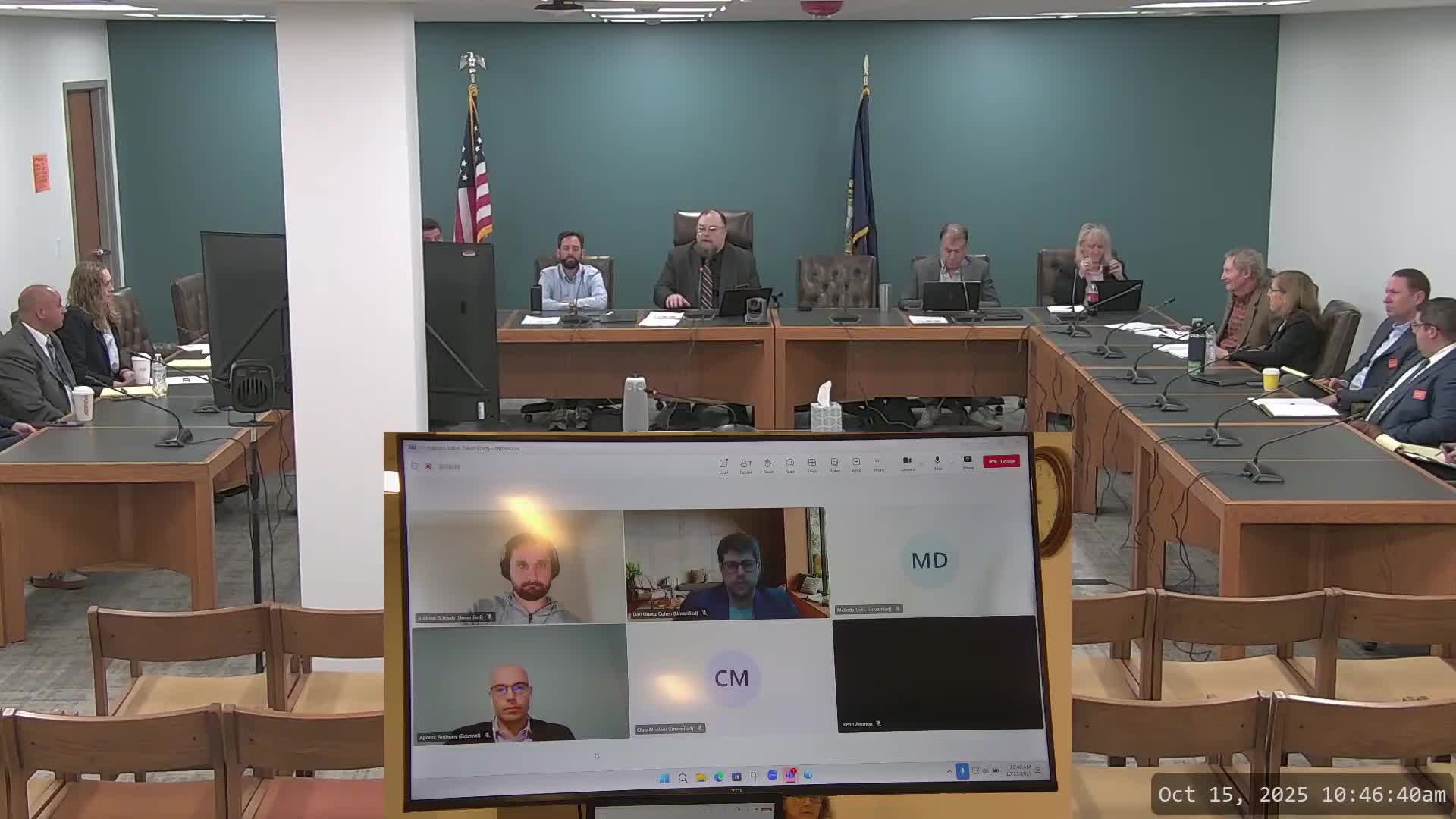Wyoming official details state-issued, fully reserved stable token program and public oversight
Get AI-powered insights, summaries, and transcripts
Subscribe
Summary
Wyoming’s Stable Token Commission told New Hampshire’s Stable Token Study Commission it is building a fiat-backed, fully reserved stablecoin to be issued by a state authority, with public rulemaking, audited reserves and plans to route interest to the state school fund.
Anthony Paolo, executive director of the Wyoming Stable Token Commission, described Wyoming’s effort to launch a fiat-backed, fully reserved stable token and recommended practices New Hampshire could study.
“ We are creating a digital asset on a blockchain that is backed by cash and cash equivalents,” Paolo said, describing the program as "dollar in, dollar out." He emphasized the design is not a central bank digital currency and that the stable token will be fully reserved with cash and short-duration U.S. Treasuries.
Paolo said the Wyoming commission was created by the 2023 Wyoming Stable Token Act and operates with seven commissioners, including the governor, the state treasurer and the state auditor, plus four subject-matter advisers. The commission has a small executive staff and publishes meetings and materials publicly. Paolo named senior staff involved in the program and said the commission is subject to legislative oversight and a public rulemaking process.
Key implementation details Paolo provided: - Reserves and reserve rules: reserves will be held in cash and high-quality short-duration U.S. Treasuries; legislation requires an overcollateralized position and the commission’s rulemaking mandates at least a 102% reserve requirement before surplus distributions to the state. - Issuance and redemption: the program intends to accept U.S. dollars for issuance and redeem tokens for dollars on demand; Paolo summarized that model as “dollar in, dollar out.” - Technology and distribution: the Frontier Stable token (announced publicly in August) is deployed on multiple public blockchains (Paolo said seven interoperable chains) and the commission uses licensed service providers (exchanges, payment platforms, community banks) to handle KYC/AML and customer-facing distribution rather than issuing directly to retail users. - Oversight and privacy: the commission conducts public rulemaking, posts procurement materials and proposes mechanisms to maintain user privacy while preserving the ability to freeze or seize tokens only subject to a valid court order. - Budget and timeline: the commission received $5.8 million in its 2025 appropriation, had spent less than $2 million as of Paolo’s briefing and seeks to be publicly available before year-end; Paolo said the commission aims to launch the first fiat-backed, fully reserved state-issued stable token in the U.S. before year-end.
Paolo described operational challenges — building a start-up inside state government, legislative and budget cycles, procurement integration and guardrails for KYC/AML and custody. He said Wyoming issued requests for information and ran a competitive procurement to select partners for issuance, custody and analytics, and that emergency rulemaking on reserves and token management is open for public comment through Nov. 6 (as reported by Paolo in the meeting).
Paolo also outlined policy rationales: enabling state digital initiatives, diversifying state revenue through interest on reserves swept to the school foundation fund, and offering a sovereign-issued infrastructure intended for cross-border and institutional use. He said the commission’s legal and technical design limits interdiction to downstream actions taken under valid court orders.
Paolo invited other jurisdictions to pursue compacting and cooperation on interoperable verification for interdiction and compliance actions and said Wyoming is exploring pilot integrations with local institutions and payment-card partners.
The commission thanked Paolo and indicated it may request more detailed briefings on chain decentralization measures and blockchain selection at a future meeting.
